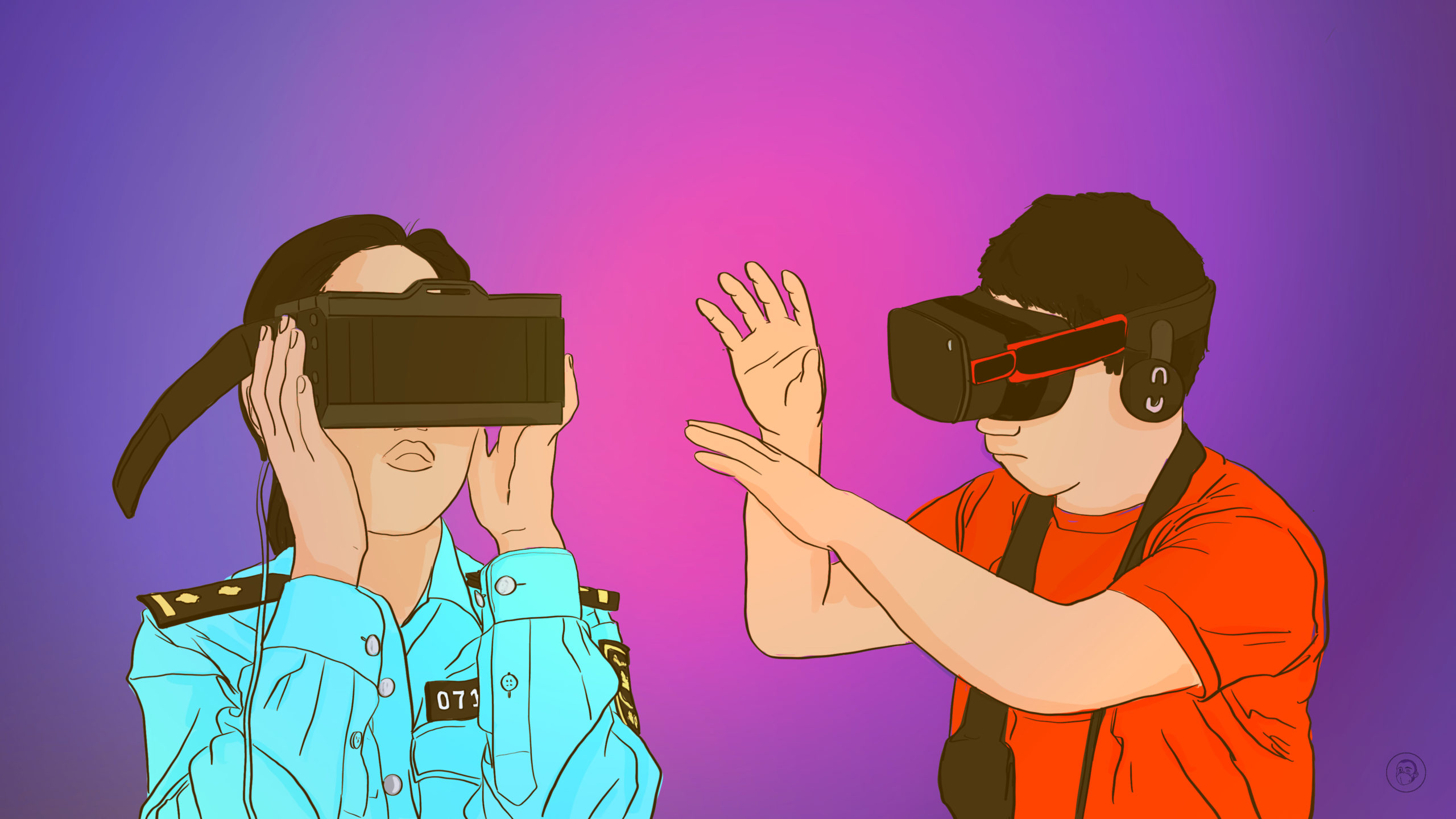How China will censor the metaverse
Beijing has long reserved a zero-tolerance approach to politically sensitive internet content. The next stage of the internet will be no different.

It’s 2030, and you’re spending Saturday afternoon in your luxury virtual apartment in the metaverse. You’re sitting with a few avatar friends, on a newly purchased digital couch overlooking the pristine Pearl River, when someone brings up the breaking news of a female celebrity’s sexual assault allegations against a retired party official. You’re about to chime in when, suddenly, your mic cuts out.
What might China’s censorship in the metaverse look like? From online discussions of the Russia-Ukraine war to COVID-19 lockdown protests, Beijing has long reserved a zero-tolerance approach to politically sensitive content on the Internet. The metaverse will be no different. Beijing will continue to censor illicit behaviors, drive the technology’s applications toward state priorities, and use the technology to further ideological aims.
Metaverse Troubles
The metaverse is a loosely defined virtual reality space where folks can interact with computer-generated worlds alongside other users. Though the idea is still in its infancy, the term, which appeared in Neal Stephenson’s 1992 science-fiction novel Snow Crash, has become a trending tech topic over the last year in both the U.S. and China.
However, no mention of the metaverse has been made in any Chinese central government-issued documents so far. “My understanding is the central government is still taking a wait-and-see approach [with the metaverse] — studying it more and measuring the pros and cons before coming out with an official stance,” said Nina Xiang, a Chinese technology expert.
In Parallel Metaverses: How the US, China and the Rest of the World Are Shaping Different Virtual Worlds, Xiang observes that the U.S. will likely adopt a free-market approach to the metaverse, allowing companies to explore all angles from a consumer or enterprise perspective.
In China, however, she thinks Beijing will harness the technology to help promote the “real” economy. “Beijing will embrace the metaverse as long as it serves the country’s goals of economic development and social stability, while incorporating strict measures to curtail any potential harm such as fraud and “excessive capital expansion,” Xiang wrote in her book.
We can expect Chinese leaders to support its development as a tool for purposes such as improving factory productivity and government services as well as to study the history of the Communist Party.
A growing number of local municipalities have included the metaverse in their development plans. In Shanghai, a virtual meeting hall was opened for companies to engage with city officials, and Beijing is exploring plans to create a “metaverse industrial cluster.”
At the end of March, the Chinese Academy of Governance, a top training school for government officials, launched a “metaverse party-building” system. According to a WeChat post by Beijing-based VR company Mengke on March 23, the new system allows party members to meet remotely to study party history, take part in meetings and participate in party-themed experiences. Screenshots of the virtual world show avatars sporting red neckerchiefs touring a Party history exhibition in the Forbidden City.
While China’s Great Firewall, introduced in the late 1990s, has played a role in limiting the flow of information into the country, the metaverse presents a unique challenge to China’s internet censors because of its dynamic landscape: rather than texts and videos, virtual worlds present a much more colorful array of interactions to monitor. In an interview with The China Project in February, the sinologist Linda Jaivin points to the recent clampdown on effeminate men in China. Removing content from video streaming platforms like Bilibili and other sites is well within the capabilities of Chinese censors. But, how can you stop a man from buying and wearing a dress in the metaverse?
Virtual Censorship
One easy way to infer how Beijing will censor the metaverse is by taking a look at its current surveillance state.
Since the COVID-19 pandemic, authorities in China have greater expanded their surveillance powers under the pretext of public safety. Videos of drones barking out orders at citizens to wear a mask or stay inside have been widely circulated online. Now, imagine drones monitoring the virtual sky, with the capability to freeze or ban your avatar until you comply.
Self-censorship will be a main vector of control just as it is now. Social media companies currently hire thousands of content moderators and still end up facing heavy fines for disseminating information deemed illegal by the country’s cyberspace regulator. (In 2021, Weibo was fined more than $2 million for content violations).
Given the ongoing crackdown on tech giants from youth gaming restrictions to exorbitant anti-monopoly fines, companies have been relatively cautious about touting their investments and development related to the metaverse.
Tencent president Martin Lau shared his opinion on the metaverse in an interview last November, stating that he thinks “the Chinese government will be in support of the development of such technologies as long as the user experience is actually provided under the regulatory framework,” as cited by Reuters.
On the other hand, technology analyst Dan Wang wrote in his 2021 letter that he suspects “Beijing will not be friendly towards the metaverse,” noting warnings from state media and heavy policing by the propaganda department.
There’s plenty to consider for Chinese regulators when it comes to censorship of a new virtual world. The government is already struggling to control public opinion amid the current COVID-19 outbreak in Shanghai. As keywords and trending hashtags like “Shanghai buy food” are blocked on Weibo, people are seeing the lengths to which Beijing will go to promote “social harmony.” China’s censorship has never been just about blocking a few hashtags and erasing videos; it is part of a general instinct to quash dissent. That instinct, rest assured, will be implemented in the metaverse.







